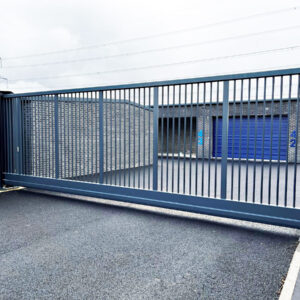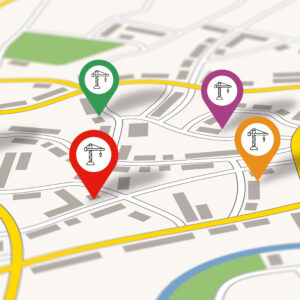In today’s flexible working world, hiring meeting rooms has become an essential part of business operations. Gone are the days when companies could rely solely on their own offices for every gathering. Whether it’s a confidential client pitch, a training session, or a board-level discussion, the right meeting room sets the tone and ensures professionalism.
Across the UK, businesses now have more options than ever before when it comes to meeting room hire. From sleek hotel suites in London to co-working hubs in regional cities, there are spaces to fit every budget, style, and purpose. In this guide, IBC explores why hiring meeting rooms is so valuable, the main options available, what to expect in terms of cost, and how to select the right space for your needs.
Why Hire a Meeting Room?
Not every business has access to a permanent, private meeting space. Even when they do, there are occasions where hiring an external room makes sense:
-
Professional image – A dedicated, well-equipped meeting space creates the right impression for clients or investors.
-
Privacy – Sensitive negotiations, interviews, or strategy sessions need to be conducted away from distractions.
-
Convenience – Rooms can be booked in locations closer to your clients, partners, or team members.
-
Flexibility – From hourly bookings to full-day hire, you only pay for the time you use.
-
Facilities – Many rooms come with screens, projectors, Wi-Fi, catering, and even breakout areas.
As IBC highlights, the rise of hybrid working means more businesses are scaling down their permanent offices and relying on hired spaces when face-to-face collaboration is needed.
Types of Meeting Rooms Available
When hiring a meeting room in the UK, you’ll find a wide spectrum of options:
1. Hotel Meeting Rooms
Hotels across the country, from budget chains to luxury venues, provide meeting rooms for hire. They often include catering packages and on-site accommodation, making them ideal for longer sessions or when attendees are travelling from outside the city.
2. Co-working Spaces
Operators like WeWork, Regus, and smaller local providers offer modern meeting rooms alongside their hot desking facilities. These are typically equipped with the latest technology and are great for start-ups, freelancers, or hybrid teams.
3. Business Centres
Business centres are designed for corporate clients and often provide multiple meeting rooms of varying sizes, from two-person interview rooms to boardrooms seating 20 or more. IBC notes that such spaces are popular with companies who need a professional setting without long-term commitments.
4. Libraries and Community Hubs
Across the UK, many libraries and civic centres now offer bookable meeting rooms at low rates. While less formal than hotels or business centres, these venues provide excellent value and are particularly suited to charities, small businesses, or local groups.
5. Specialist Venues
For events like training courses or workshops, specialist venues often combine meeting rooms with larger seminar halls. These spaces usually include dedicated staff support and can be tailored to specific requirements such as catering or AV equipment.
Meeting Room Costs in the UK
The price of hiring a meeting room varies widely depending on location, size, and amenities. IBC’s overview of the market shows a typical breakdown:
-
Small meeting rooms (2–6 people) – £10–£25 per hour
-
Medium meeting rooms (6–12 people) – £20–£40 per hour
-
Large boardrooms (12–20+ people) – £40–£80 per hour
-
Full-day hire – £100–£300, depending on venue and city
London is generally the most expensive, with central locations commanding premium rates. Regional cities like Birmingham, Manchester, and Leeds offer much more affordable options, with some community venues providing rooms for as little as £30 per day.
What’s Included When You Hire a Meeting Room?
Most meeting rooms now come with standard facilities, but it’s worth checking exactly what’s included. A typical package might feature:
-
High-speed Wi-Fi
-
Whiteboards or flip charts
-
Large screens or projectors for presentations
-
Conference phones or video conferencing tools
-
Comfortable seating and tables
-
Access to refreshments or catering services
IBC recommends always confirming whether additional costs apply for extras like catering, extended hours, or specialist AV support.
Benefits of External Meeting Spaces
Hiring a meeting room offers more than just a table and chairs. The benefits include:
-
Neutral ground – Ideal for negotiations where neither party wants to meet at the other’s office.
-
Inspiration – Fresh environments can boost creativity and collaboration.
-
Focus – A dedicated space reduces interruptions and ensures meetings run smoothly.
-
Scalability – Book the right size room for each occasion rather than relying on a one-size-fits-all office.
As IBC points out, businesses today need to balance cost-efficiency with professionalism. Meeting room hire provides that balance perfectly.
How to Choose the Right Meeting Room
When selecting a venue, keep the following in mind:
-
Location – Choose somewhere convenient for all participants, ideally close to transport hubs.
-
Capacity – Ensure the room is appropriately sized; too small feels cramped, too large feels impersonal.
-
Facilities – Check whether Wi-Fi, AV equipment, and catering are included.
-
Budget – Compare options across hotels, co-working spaces, and community venues.
-
Atmosphere – The style of the space should align with your company’s image and the purpose of the meeting.
Meeting Rooms in London vs the Rest of the UK
London naturally offers the widest range of meeting room hire options, from high-end boardrooms in Mayfair to budget-friendly spaces in outer boroughs. However, regional UK cities are quickly catching up.
In Birmingham, for example, business centres in Colmore Row provide professional spaces at half the price of London equivalents. In Manchester, Ancoats and Spinningfields are home to stylish co-working hubs offering affordable meeting rooms with all the modern amenities. Edinburgh and Glasgow also boast a growing number of venues catering to businesses seeking flexible, cost-effective solutions.
IBC notes that many companies are now choosing to hold regional meetings outside London to cut costs while still benefiting from professional facilities.
The Future of Meeting Room Hire
The demand for meeting room hire is expected to keep growing. Hybrid working models mean fewer businesses maintain large office footprints, instead opting to hire spaces when collaboration is needed. Technology is also playing a role, with many meeting rooms now equipped for hybrid meetings, enabling in-person and remote attendees to collaborate seamlessly.
Sustainability is another trend shaping the industry. Venues that prioritise eco-friendly design, energy efficiency, and locally sourced catering are becoming more attractive to businesses keen to demonstrate their environmental credentials.
Final Thoughts
Hiring meeting rooms is no longer a niche solution—it is central to how modern businesses operate. Whether you need an affordable community room in Leeds, a stylish co-working hub in Manchester, or a premium boardroom in central London, the UK offers countless options to fit every budget and purpose.
For IBC, highlighting these flexible, cost-effective solutions demonstrates how businesses can thrive without the constraints of permanent office space. Meeting room hire is not just about convenience; it is about adaptability, professionalism, and ensuring every interaction makes the right impression.




